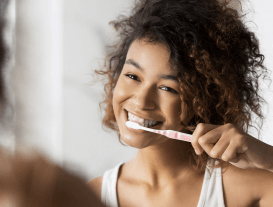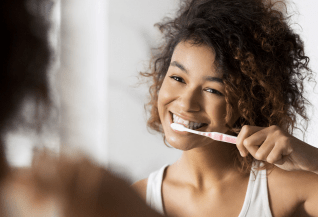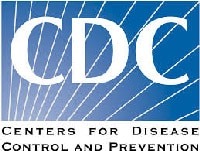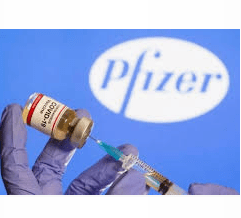Is brushing your teeth enough?


When you clean your kitchen, you don’t just scrub the stove and call it a day. Sure, the stove is an important part of the kitchen that attracts its fair share of bacteria and you definitely should clean it! But it’s hardly the only surface in the room that needs scrubbing.
We all know the importance of brushing our teeth for good oral hygiene. It’s been drilled into us from a very young age, and with good reason! But think about all the surface area in your mouth. Just like the stove in your kitchen, the teeth in your mouth need cleaning, but they only make up a small amount of the total surface areas that you should be cleaning regularly to keep your mouth clean and healthy.
So, no. Brushing alone is not enough.
Comprehensive oral hygiene begins with brushing your teeth, but it does not end there. If you want to keep your teeth healthy and strong and prevent tooth decay, gum disease, and bad breath, you should seriously consider adding a couple more steps to your routine. In extreme bad dental hygiene cases, oral surgery may be required, so to avoid this fate, take good care of your mouth! Make sure you are brushing your teeth correctly and enhance your oral care routine with interdental brushes and floss, mouthwash, and take other precautions to ensure healthy teeth and gums.
The Right Way to Brush
Of course, first, you want to make sure that you’re brushing your teeth the right way. Since it’s something we’ve been doing every day for as long as we can remember, it’s easy to put toothbrushing on autopilot. That’s why it’s a good idea to check in every once in a while and make sure you’re following all the best advice when you’re brushing your teeth.
First of all, get the right gear. Whether you prefer electric or manual, find a toothbrush endorsed by the American Dental Association , or ADA. It’s important to pick a brush with soft bristles, which clean more effectively than hard bristles and inflict less damage on your tooth enamel. You should also pick an ADA-approved fluoride toothpaste, and look for pastes that address concerns you may have like sensitive teeth.
Make sure to brush for the full two minutes — minimum! — and don’t brush so hard that your bristles are frayed and fuzzy after only a month or two of use. You’re not scrubbing kitchen tile! Give your teeth and gum line a circular massage and make sure to hit all sides of the teeth.
Don’t forget to brush your tongue and even the roof and sides of your mouth to remove bacteria.
What Else Should We Be Doing?
Use mouthwash. An ADA-endorsed mouthwash will contain antimicrobial ingredients that will enhance your oral care routine and kill bacteria hanging out in all areas of your mouth, including ones that you don’t typically touch while brushing. This will reduce your risk of tooth decay and gum disease, with the added benefit of alleviating bad breath. Some mouthwashes also help with cavity protection and teeth whitening. You should make an effort to use mouthwash at least once a day.
Floss and use interdental devices . At least once a day, your dental routine should include good flossing. Floss helps you get between the teeth in a way that your toothbrush and mouthwash just can’t. Plaque can easily build up between the teeth and cause cavities. Especially when you have braces, as it may hold food upon eating, and encourage the onset of gum disease. It is very important to floss your teeth, as well as to visit your dentist or an orthodontist in Calgary for regular checkups and adjustments.
When you floss, you scrape that plaque off the sides of your teeth and you should be sure to go all the way down to the gumline. There is a wide variety of products you can use for this like traditional floss, floss picks, and oral irrigation systems, as well as wider interdental brushes that clean between teeth with larger gaps. Floss first to loosen food debris and plaque and then brush to remove the buildup from your mouth.
Watch what you eat. Certain foods, particularly those containing sugars, can cause tooth decay by wearing away at your tooth enamel. Snacking on hard candies is particularly harmful because they stay in your mouth longer as they slowly dissolve, leaving a lot more time for sugar and teeth to be in contact. Try to eat carbs with meals and rinse your mouth with water after eating. Avoid sugary snacks before bed so the sugars don’t sit in your mouth all night.
See your dentist regularly. It’s no one’s favorite activity, but that checkup and cleaning visit should be on your calendar every six months. Too many of us wait until we notice there’s something wrong, and by then it’s too late for preventative measures to have any effect, and by then oral surgery and dental sedation may be required. No amount of good brushing is going to reverse a cavity that has been growing for five years. Regular dentist visits help keep your teeth clean and give your dentist the chance to catch potential problems before they become major issues that require extreme and expensive care, so if it’s been a while, pick up your phone and give your dentist’s office a call.
What Happens if We Don’t?
Once your adult teeth grow in, those are all the teeth we get for life, so it’s important to take good care of them. A comprehensive daily oral care routine that includes proper brushing, flossing, and mouthwash is the best preventative against cavities, tooth decay, or gum disease.
When we don’t take care of our teeth, that’s when issues begin to crop up. Cavities grow easily in plaque-ridden teeth, and bacteria left in the mouth can bring on tooth decay. Gum disease has been shown to contribute to heart disease and even birth defects if you’re pregnant. Extreme dental cases may require restorative dentistry, so the best defense against that fate is a quality preventative routine.
It’s also important to see your dentist regularly so that they can identify if you are at risk for any other oral issues, and they can let you know how your routine of brushing, flossing, using mouthwash, and watching what you eat is working for you.





